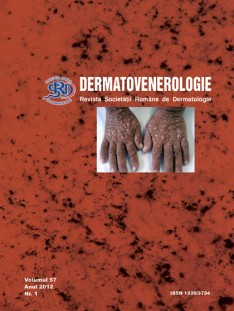Clinical trials and experimental
Topical psoralen and natural ultraviolet radiation treatment for alopecia areata
Background:
Although research over the last few years has yielded valuable data on the etiology and pathogenesis of the insidious form of hair loss in alopecia areata, there are still many grey areas, and the answers of many unfathomable questions continue to elude scientists and medical experts. With an enigmatic etiology, there is neither a permanent cure for AA nor a universally proven therapy inducing remission.
Objective: This study aims to showing the efficacy of topical PUVA-SOL in the treatment of alopecia areata, and immunomodulatory effect of topical PUVA-SOL therapy.
Patients And Methods:
One hundred and fifty patients with AA attending Department of Dermatology at Tikrit Teaching Hospital were enrolled in this study in the period December 2008 through to December 2009; there were 1oo cases (66.66%) and 50 controls (33.33%). All patients were examined clinically, then interviewed and detailed AA questionnaires were completed for each of them.All patients included in this study suffered from AA, which failed to response to conventional therapy. Patients were instructed that they should stop all medications at least 3 weeks before starting therapy with trisoralin(Trimethyl psoralen) 0.15 topical application. After 15 minutes of topical psoralen, the patients were instructed to expose the affected skin to sunlight.
patients were instructed to expose the affected skin to sunlight.
Results:
The most common site for AA found in the scalp. The AA more common in male than female, and more common in the young age than old age. The response of lesions to treatment were 68% in the cases, and 13% in the control while not response 32% in the cases, and 87% in the control.The time of response to treatment more visible after 20 weeks of treatment among cases and control.
Conclusions:
It can be concluded that PUVA-SOL is effective method of treatment in AA, especially when the response to conventional therapy failed.With an enigmatic etiology, there is neither a permanent cure for AA nor a universally proven therapy for inducing remission
Although research over the last few years has yielded valuable data on the etiology and pathogenesis of the insidious form of hair loss in alopecia areata, there are still many grey areas, and the answers of many unfathomable questions continue to elude scientists and medical experts. With an enigmatic etiology, there is neither a permanent cure for AA nor a universally proven therapy inducing remission.
Objective: This study aims to showing the efficacy of topical PUVA-SOL in the treatment of alopecia areata, and immunomodulatory effect of topical PUVA-SOL therapy.
Patients And Methods:
One hundred and fifty patients with AA attending Department of Dermatology at Tikrit Teaching Hospital were enrolled in this study in the period December 2008 through to December 2009; there were 1oo cases (66.66%) and 50 controls (33.33%). All patients were examined clinically, then interviewed and detailed AA questionnaires were completed for each of them.All patients included in this study suffered from AA, which failed to response to conventional therapy. Patients were instructed that they should stop all medications at least 3 weeks before starting therapy with trisoralin(Trimethyl psoralen) 0.15 topical application. After 15 minutes of topical psoralen, the
 patients were instructed to expose the affected skin to sunlight.
patients were instructed to expose the affected skin to sunlight.Results:
The most common site for AA found in the scalp. The AA more common in male than female, and more common in the young age than old age. The response of lesions to treatment were 68% in the cases, and 13% in the control while not response 32% in the cases, and 87% in the control.The time of response to treatment more visible after 20 weeks of treatment among cases and control.
Conclusions:
It can be concluded that PUVA-SOL is effective method of treatment in AA, especially when the response to conventional therapy failed.With an enigmatic etiology, there is neither a permanent cure for AA nor a universally proven therapy for inducing remission


